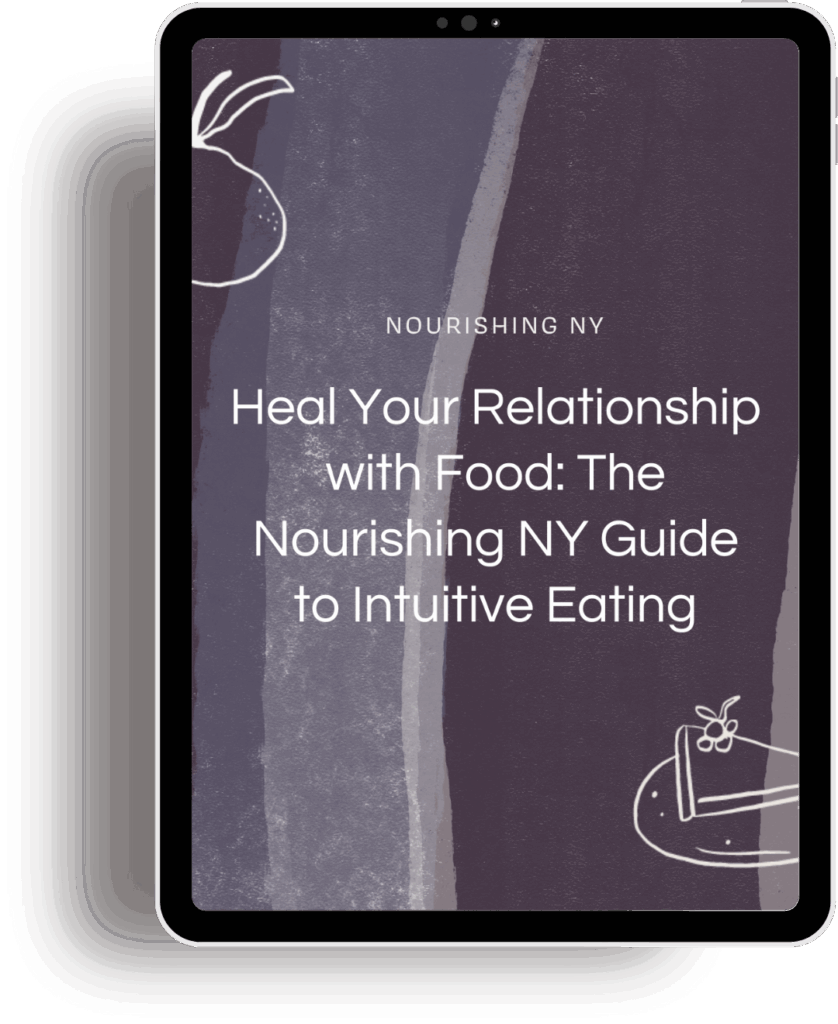Each of us has our own health goals. Whether you are trying to lower your cholesterol, manage your diabetes, or include more physical activity in your day, food is part of your life. Food is the center of every family or work function, the common ground for meeting up with an old-time friend, and sometimes, the sweet answer to our cravings. We cannot ignore food because it will always be there if you have access to it. So if you are fortunate enough to have food as part of your life, let’s stop treating it like it is an enemy. Let’s start learning to embrace food for all of its wonderful qualities by following the anti-diet approach.
How can you start following the anti-diet approach?
1. Reject the diet mentality.
First and foremost, understand that the promoters of diet culture are lying to the public. While they promote their diets as the best way to achieve your health goals, research shows that 95% of dieters fail in their attempts. Having this in mind, it is crucial to fully reject diet culture and all the lies that come with it.
To begin, think about where you are getting your nutrition information. With social media, misinformation spreads easily. Are your sources grounded in science or written by registered dietitians? Or are they written by unqualified professionals? Disassociate yourself from these social media pages, and make the choice not to diet. Others around you may continue to go on diets, but you are making the decision that is best for you, not them.
2. Honor your hunger.
To prevent overeating and binging, you should not enter a meal feeling starved. Allowing yourself to eat when you are hungry and not only at traditional meal times will help your body get its necessary fuel. If you choose to abstain from food in between mealtimes when you are hungry, you may end up eating more than you would like to during the meal. By honoring your hunger, you will keep yourself at a comfortable level of hunger and fullness and mitigate the urge to overeat.
It is important to recognize that diet culture has made many of us lose touch with our hunger and fullness cues. If you feel that this applies to you, seeing a registered dietitian is a good way to help you regain contact with your body’s needs. Additionally, trying to eat on a schedule of every 3-4 hours can help you reconnect with your body’s hunger and fullness cues.
3. Make peace with food.
PSA: it’s okay if this sounds scary! Allowing yourself to fully satisfy your hunger by eating the food of your choice is a foreign concept to many people. You may not trust yourself at first, thinking that you will go overboard if you give yourself such uncontrolled permission. In reality, your hunger cravings will level off as you practice the anti-diet approach because your body knows what nutrients it needs.
The anti-diet approach also requires that you eliminate the morality of food. Food can be appetizing or unappetizing, but it is not good or bad. Labeling foods as good or bad can lead you to binge whenever you have access to a “bad” food. This can get in the way of giving your body the nutrients it needs.
4. Respect your body.
Diet culture teaches us that weight is the one and only indicator of health. This is not true! Our bodies are based in genetics, and all bodies change over time. An elderly person does not look the same as they did when they were 20 years old. Recognize all of the wonderful things your body has allowed you to whether it is walking every day to work or birthing a child. Your body deserves to be treated with compassion, understanding, and respect.
5. Honor your health.
Removing food restrictions may cause you to eat foods that are not nutrient-dense. While this is completely okay, it is also important to maintain a balanced diet and eat a variety of foods. Each food has different nutritional values, so it is beneficial to have a diverse palette. Additionally, striving to eat protein, carbohydrates, and fats throughout the course of each day will help you satisfy your hunger while meeting your nutrition needs.
So what should you do?
Next time you have a family function or dinner party, keep these principles in mind. Don’t let others around you who are on diets hinder your fun. Remember that food is not good or bad, but they do have different nutrient profiles. Satisfy your hunger craving because it can hurt you later if you don’t! Your health comes first. Remember that weight or appearance is not an indicator of health, no matter what the media says! Ultimately, meeting your physiological and emotional needs is a must. If you have the access to food, enjoy it instead of being afraid of it.
Sources:
Cerino, Chloe. “FREE Webinar: What is Intuitive Eating? An Introduction to Anti-Diet Nutrition.” YouTube, uploaded by BALANCE Eating Disorder Treatment Center, 12 January 2021, https://www.youtube.com/watch?v=vIc41GnpET4



